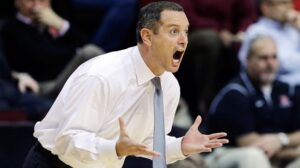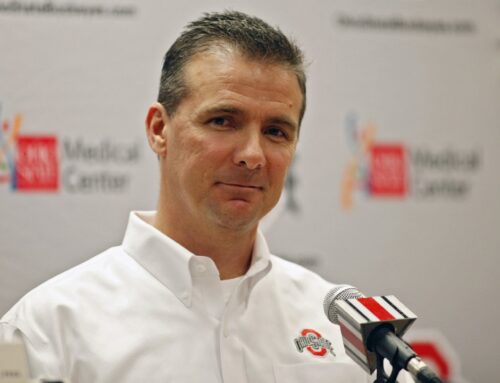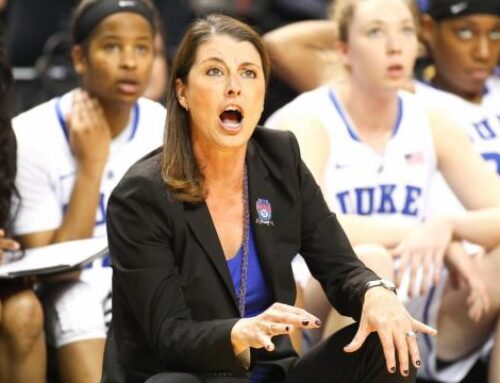Maybe not stop entirely, but take a moment to have a think about the reality of narrating after competition.

We prepare. We coach the game. We narrate. Sometimes, too much.
In sport, narrating occurs when we tell the story after a game – replaying successful moments and times when our athletes fail to execute. Sometimes, we even talk about things that don’t relate to the performance of your team or individual athlete – just stuff that gets us as far away from a poor performance as possible.
Have a look at this video.This coach is the leader of the pack at narrating….he loves it!
Now, he is an actor, but it isn’t far from reality at times. To narrate is human (coach) nature. We lead a team through many training sessions, come to the big match and our team performs great or…. not so great. Invariably, coaches (and sport leaders – those individuals who lead coaches) spend too much time afterwards narrating what happened.
Does this sound familiar?
“We couldn’t score on their goalie! We kept shooting right at him.”
“Our captains can’t solve problems on the field! They totally freeze! It drives me crazy.”
“We worked for hours preparing for that situation in practice. The gals just couldn’t execute the plan.”
It is soooo hard to avoid. As coaches, we are active participants in sporting events and we like to tell the story. It feels good. It is cathartic. In fact, some of us can tell a really good story and that is an art in itself, so we feel productive when we can share our perspective with others, particularly when there is a lot on the line and the players didn’t necessarily perform to their potential, making the coach look bad.
But narrating should not occur for long. Telling the story is easy. Determining what happened, how we assess the performance and identifying the key steps to correct mistakes, or build on a strength, is the true mission of any coach.

This coach refuses to narrate….you may recognize him. Click on the link to watch the clip.
Belichick
Belichick may not publicly agree, but it can be helpful immediately after a game to narrate. The story needs to get in front of the people who can impact future performance the most (other coaches, medical personnel, management). Put simply, it can be a way to get “data” in front of your performance team. I bet my bottom dollar that Belichick does a lot of narrating with his staff after games – not so much in this interview. Especially, after a loss to the Steelers on October 23rd, 2016 (Go Steelers!).

What does the highly effective coach do after a healthy moment of narration? They may ask this question:
“What can we do to change our team’s behaviour in order to improve performance?”.
As coaches, we must develop the discipline to stop ourselves and those around us from just telling the story as we try and drill down to why the errors occurred. The essence of coaching is discovering methods to change athlete behaviour – we are teachers. We are not productive in doing so when we just tell the story.
Ask yourself:
Why is the athlete failing in this situation?
Do we have the right team strategy in place?
Have we developed the skills necessary for the athlete to execute the skills under pressure in a game situation?
Do my athletes have the leadership skills they need lead the team in moments of pressure or conflict?
And most importantly, ask the athletes for their perspective. Never forget the power of the question mark. Power of the Question Mark Blog
Give it a try after your next competition. Identify a handful of areas that clearly had a negative impact on performance and fight the urge to vent and instead get laser-focused on how you can change this behaviour. And, if you are really brave, ask your staff to stop you from over-narrating.
It is highly likely that your athletes will benefit!




